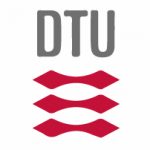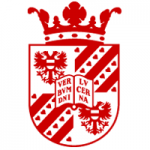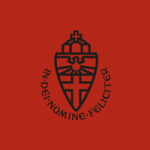项目介绍
A 3-year PhD Student position is available for the dedicated researcher who wants to pursue a front runner research career in combining Life Cycle Assessment and nutrition impacts of foods. The position is offered at the Section for Quantitative Sustainability Assessment (QSA), Department of Environmental and Resource Engineering (DTU Sustain). QSA spearheads development of methods and application of life cycle impact assessment and sustainability assessment of food systems, determining impacts on both human health and the environment.
DTU Sustain is one of the largest university departments specializing in environmental and resource engineering in Europe. It develops new, more environmentally friendly technologies and new quantitative sustainability assessments methods. DTU has been the most publishing and cited university worldwide in the field of LCA.
The PhD project is a part of the EU-HORIZON-FARM2FORK project FishEUTrust (European Integration of New Technologies and Socio-economic Solutions for Increasing Consumer Trust and Engagement in Seafood Products). The overall goal of FishEUTrust is to defragment the current food system to ensure a sustainable seafood supply chain by developing solutions to bring about the transparency and traceability needed to promote high-end, pan-European farmed seafood, addressing diet, health, and consumer behaviours as well as sustainable aquaculture and the blue economy.
The project is coordinated by the Jožef Stefan Institute in Slovenia and involves several industry partners. DTU will lead integrated impact assessments to quantify environmental footprint, sustainability, and analyze trade-offs with the socio-economic performances of FishEUTrust approaches, as established by other project partners. For this purpose, this PhD project will develop new food specific characterization methods accounting for both dietary health effects of seafood and its impact on the environment.
Responsibilities and qualifications
The successful candidate will perform a sustainability assessment of aquaculture production systems, to find solution that improve the environmental and health performances of seafood products. The candidate will further develop metrics to specifically model the health impact of seafood consumption, as well as the specific environmental impacts of aquaculture, including the spread of antibiotics and nutrients in the environment. The new metric shall be compatible with existing life cycle impact assessment approaches.
The main tasks involve:
- Development of fish specific risk ratios and health impacts, expressed in Disability Adjusted Life Years (DALYs), expanding the work of the Global Burden of Disease to characterize fish quality and account for seafood quality.
- Development of a method to compare the life cycle environmental impacts of closed loop production with open sea production method, accounting for impacts of nutrient spread and antibiotic releases.
- Collection of life cycle input data in collaboration with the EU fish partner for different aquaculture scenarios
- Implementation of the method and analysis of the life cycle health and environmental performances of various aquaculture supply chains, also in comparison with fishing.
- Integration of the environmental and health impacts with other socio-economic performances assessed by project partners and recommendation for sustainable and healthy seafood supply
Additionally, the candidate is expected to participate in the department’s teaching and dissemination activities.
You must have a two-year master’s degree (120 ECTS points) or a similar degree with an academic level equivalent to a two-year master’s degree. The degree should preferably be within Chemistry, Chemical Engineering, or Environmental Engineering with knowledge on food quality. Knowledge of sustainable mode of production, life cycle/sustainability quantitative approaches, quantitative and computing skills, as well as written and spoken English, are required. Further, candidates should have documented knowledge in one or more of the following fields: Water treatment, life cycle based environmental assessment approaches, food quality, production and manufacturing system and supply chain.
Approval and Enrolment
The scholarship for the PhD degree is subject to academic approval, and the candidate will be enrolled in one of the general degree programmes at DTU. For information about our enrolment requirements and the general planning of the PhD study programme, please see DTU’s rules for the PhD education.
Assessment
The assessment of the applicants will be made by Prof. Olivier Jolliet and Associate Prof. Alexis Laurent. One to two rounds of formal interviews are expected. Further, an HR personality test and an English skills test (if needed) are also part of the recruitment procedure at DTU Sustain.
We offer
DTU is a leading technical university globally recognized for the excellence of its research, education, innovation and scientific advice. We offer a rewarding and challenging job in an international environment. We strive for academic excellence in an environment characterized by collegial respect and academic freedom tempered by responsibility.
Salary and appointment terms
The position is a full-time position. Expected PhD start is 1 September 2022. The workplace will be at DTU Lyngby Campus. Limited number of travels to FishEUTrust project meetings, held outside Denmark, are foreseen.
The appointment will be based on the collective agreement with the Danish Confederation of Professional Associations. The allowance will be agreed upon with the relevant union. The period of employment is 3 years.
You can read more about career paths at DTU here.
Further information
Further information may be obtained from Olivier Jolliet (ojoll@dtu.dk).
You can read more about DTU Sustain at www.sustain.dtu.dk/english.
If you are applying from abroad, you may find useful information on working in Denmark and at DTU at DTU – Moving to Denmark. Furthermore, you have the option of joining our monthly free seminar “PhD relocation to Denmark and startup “Zoom” seminar” for all questions regarding the practical matters of moving to Denmark and working as a PhD at DTU.
Application procedure
Your complete online application must be submitted no later than19 July 2022 (Danish time). Applications must be submitted as one PDF file containing all materials to be given consideration. To apply, please open the link “Apply online”, fill out the online application form, and attach all your materials in English in one PDF file. The file must include:
- A letter motivating the application (cover letter)
- Curriculum vitae
- Grade transcripts and BSc/MSc diploma (in English) including official description of grading scale
- Documentation of knowledge on manufacturing and production systems, water treatment, pollution propagation, food quality, life cycle or sustainability quantitative approaches.
- Short motivation statement for this project
You may apply prior to obtaining your master’s degree but cannot begin before having received it.
Applications received after the deadline will not be considered.
All interested candidates irrespective of age, gender, race, disability, religion or ethnic background are encouraged to apply.
Department of Environmental and Resource Engineering is one of the largest university departments specializing in environmental and resource engineering in Europe. The department conducts research, development & scientific advice and provides educational programs and service to society. We are working to develop new environmentally friendly and sustainable technologies, methods and solutions, and to disseminate this knowledge to society and future generations of engineers. The Department has approximately 300 employees from more than 30 nationalities.
Technology for people
DTU develops technology for people. With our international elite research and study programmes, we are helping to create a better world and to solve the global challenges formulated in the UN’s 17 Sustainable Development Goals. Hans Christian Ørsted founded DTU in 1829 with a clear vision to develop and create value using science and engineering to benefit society. That vision lives on today. DTU has 13,400 students and 5,800 employees. We work in an international atmosphere and have an inclusive, evolving, and informal working environment. DTU has campuses in all parts of Denmark and in Greenland, and we collaborate with the best universities around the world.
联系方式
电话: (+45) 45 25 25 25相关项目推荐
KD博士实时收录全球顶尖院校的博士项目,总有一个项目等着你!





